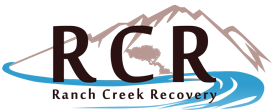6 Tips to Help Family Members Cope with the Stresses of Addiction
The oft-used phrase, that addiction is a family disease, is absolutely true. Drug and alcohol addictions do not develop in a vacuum. Addicts are sons and daughters, they are husbands and wives, and they are sisters and brothers. When a family member is drawn into drug or alcohol dependency, it isn’t only their world that is shattered—the damage reverberates through the entire family.
With the majority of the attention and energy swept up in the turbulence surrounding the addict, families of addicts simply don’t know how to deal with the fallout from the addiction that has impacted their world in every way. As the family member’s addiction spins out of control, family members are left coping with anxiety over the financial impact, worry about their loved one not surviving the addiction, and the loss of trust as a result of being lied to, robbed by, or even threatened by the addict in the family.
Here are 6 tips suggested for the families of addicts how to deal with their disease:
- Get educated. Before you can be of any help to the addicted family member, or yourself, you must learn all you can about the addict’s drug of choice. Knowledge truly is power for the families of addicts, teaching them how to deal. Acquiring a clear understanding of the effects of the drug on the mind and body, the trajectory of the disease, and the treatment options is key to empowering the family and reducing fear of the unknown.
- Find support. As the stress and anxiety ratchet upward, family members may feel utterly alone with the challenges that accompany an addict in the family. Seek out a local Al-anon group and listen to others share their own experiences with their addicted loved one. Soon you will not feel so utterly alone, and you can benefit from the helpful materials available at the meetings. Not a meeting kinda person? Consider family therapy, with or without the addict present, where professional guidance can provide the tools family members will need to access while on this painful journey.
- Get exercise. Getting regular daily exercise is an effective way to release stress and increase the “happy hormones,” the endorphins that elevate mood during exercise. It doesn’t matter what type of exercise you choose, just so you do it regularly. Studies show that cardio workouts, particularly, are excellent stress-reducers: running, walking, hiking, dance cardio (Zumba, U-Jam), cycling, and swimming all improve overall fitness while reducing stress.
- Embrace your passions. Being emotionally drained on a daily basis depletes not only your physical health, but trashes your spirit as well. Make it a weekly priority to engage in a beloved hobby or passion to counterbalance the negative energy that addiction has brought into your home. With so much energy and time demanded by the addicted family member, it is easy to lose yourself in the process. Force some you-time into your schedule—be it reading, gardening, participating in a sport, taking a class, photography, playing a musical instrument, or going to the movies—and find a healthier mind-spirit balance amid the turmoil.
- See friends. As your focus becomes centered more and more on your addicted loved one it is easy to become isolated. Some family members might experience feelings of shame or guilt due to their loved one’s disease, and sense that they might be judged or shunned. The path of least resistance, to hide at home, must be resisted! Connect with trusted, loyal friends and relatives who won’t cast judgment, desiring instead to be a caring support source for you and your family. Addiction touches most families in some way, and genuine friends will want to share their own stories and be there for you.
- Family sessions. While your family member is in treatment, make every effort to participate in the family program offered there. Family groups are a powerful place to uncover issues in the family dynamic that may have contributed either directly or indirectly with the substance abuse. Even if there is no issue related at all, the family group work helps foster empathy among the family members, as well as providing tools to access in subsequent recovery.
Ranch Creek Recovery Offers Hope and Healing for Families and Addicts
Ranch Creek Recovery is an intimate, private drug and alcohol rehab located in the beautiful hills of Temecula, California. The serene, natural setting is a perfect backdrop for the holistic treatment program that helps heal mind, body and spirit. A core element of the program is family education and group work. Believing that families of addicts need guidance in how to deal with the stresses and challenges associated with the disease of addiction, the certified counselors are there to provide this important direction. For more information on our program, including the family component, please call us today at (877) 997-8931.












